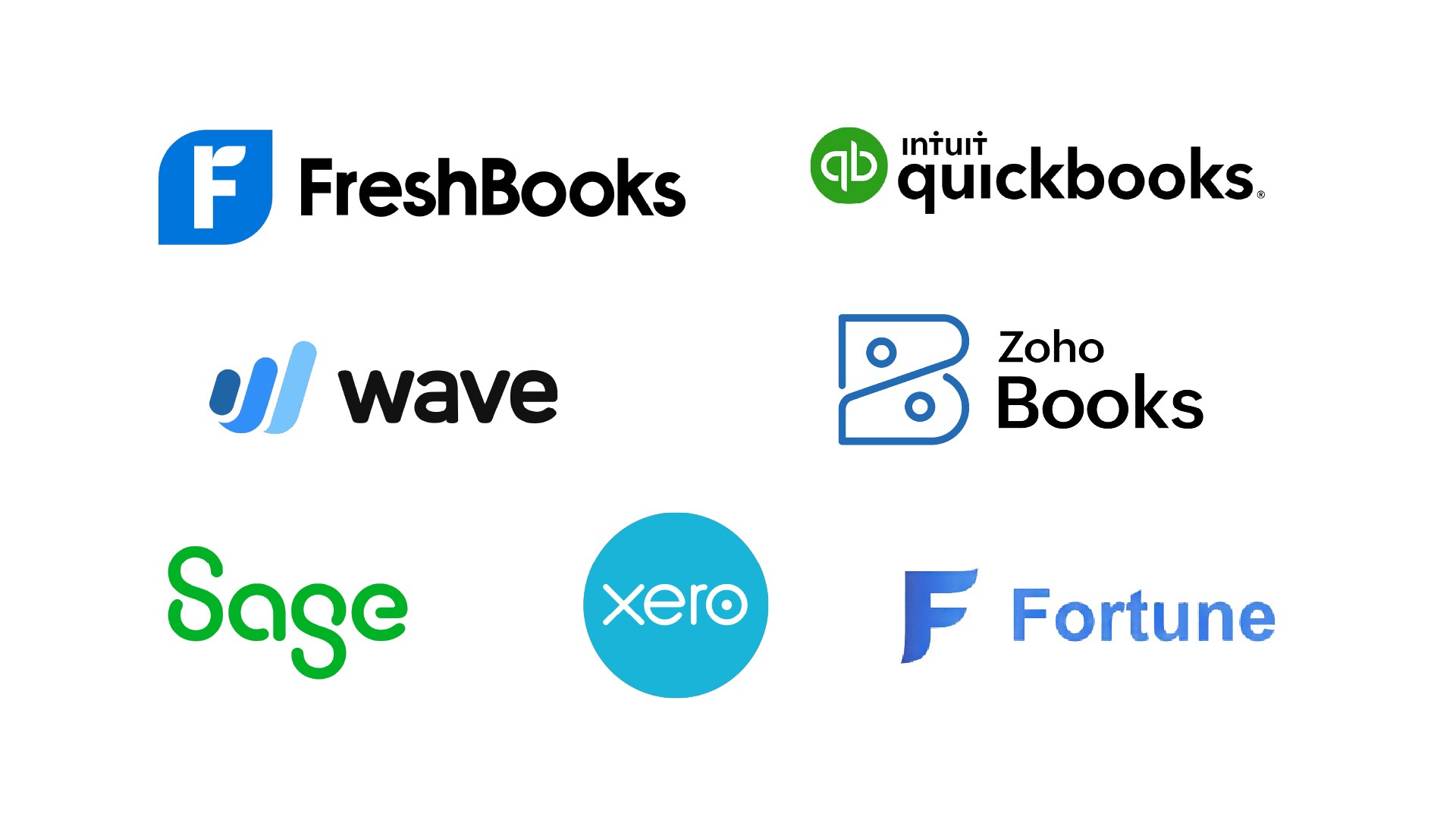
Back to Blog
Share Post:

Accounting
Jan 3, 2024
Ethical Considerations In Accounting - What You Need To Know
Ethics concerns moral principles and values that drive human conduct, discriminating between good and wrong and affecting decision-making in diverse settings.
Artificial Intelligence or AI refers to developing computer systems that can do activities that normally require human intellect, such as problem-solving and learning.
Accounting documents, analyzes, and methodically reports financial transactions to guarantee successful financial management and regulatory compliance.
Ethical accounting is keeping financial records, managing cash flows ethically and carrying out financial transactions with honesty, openness, and integrity by moral ideals and legal norms.
Accounting involves recording and analyzing financial transactions. Accountants differ in their roles and expertise. Ethics are crucial in accounting, with integrity, objectivity, competence, confidentiality, and professional behavior being fundamental.
Ethical pitfalls to avoid include inaccurate reporting, disclosure violations, executive-centric practices, asset misuse, and a lack of transparent chains of command. Maintaining ethical standards is vital for preserving trust and transparency in accounting practices.
What is Accounting?
Accounting is the systematic process of recording, summarizing, and analyzing financial transactions within an organization. It ensures accurate financial reporting, facilitates decision-making, and helps with compliance.
However, accounting software is a powerful tool designed to streamline these tasks. It automates data entry, manages accounts payable and receivable, and generates financial statements.
With the help of this software, companies can keep neat and error-free financial records, eventually saving time and lowering the possibility of human error. Its ability to improve productivity and offer real-time financial data makes it a vital tool for companies of all sizes.
How Are Accountants Different?
Accountants stand out for their commitment to openness, honesty, and selflessness, principles deeply ingrained in public life. When accountants operate within the public sector, they're held to a consistent set of standards that align with these values.
The duality of their responsibilities sets accountants apart from many other professions. They're not only answerable to their employers but also to the public at large.
The trust in their work extends beyond their bosses and clients; it reaches out to society and various stakeholders. When a public sector accountant is at work, they bear the crucial responsibility of safeguarding the public's finances. Therefore, they must display unwavering transparency in their actions and be ready to be held accountable for their decisions.
In essence, the professional duty of an accountant is to act in the public interest, ensuring the financial well-being and integrity of the communities they serve.
Why Are Ethics Important in Accounting?
Ethics is important in accounting due to the following reasons:
1. Maintaining Trust
Ethics play a pivotal role in accounting, safeguarding the integrity and credibility of financial information. Trust is the foundation of any financial system, and without ethical accounting practices, this trust can quickly erode.
Accountants hold a privileged position in finance, entrusted with sensitive financial data. Upholding high ethical standards helps maintain this trust and ensures that stakeholders, including investors, creditors, and the general public, can rely on financial statements to represent a company's financial health accurately.
2. Protecting Stakeholder Interests
The goal of ethical accounting is to safeguard the interests of stakeholders in addition to adhering to laws and regulations. Accountants' fiduciary duty is to guarantee that financial data is reported truthfully and adequately.
Any unethical activity can hurt shareholders, employees, and other parties that rely on the financial information to make wise decisions. Examples of such behavior include hiding financial difficulties or exaggerating earnings.
3. Compliance with Legal and Regulatory Framework
Ethical accounting practices ensure compliance with the legal and regulatory framework governing financial reporting. Violations can lead to severe legal consequences, fines, and damage to an organization's reputation.
Staying ethical helps accountants and their organizations avoid legal pitfalls and maintain a favorable standing with regulators.
4. Safeguarding Professional Reputation
Like professionals in any field, accountants strive to build a strong and reputable image. Ethical behavior is a cornerstone of a professional's reputation. Unethical actions like fraud can tarnish one's career and hinder future professional opportunities.
5. Long-Term Sustainability
Accounting ethics concerns an organization's long-term sustainability, not only its immediate gain. Businesses emphasizing ethical accounting are likely to build strong bonds with stakeholders and successfully navigate difficult economic times.
5 Ethics To Be Upheld In Accounting
In the dynamic world of accounting, upholding ethics is paramount. This article explores five key ethical principles that accountants must rigorously embrace to maintain trust and integrity.
1. Integrity
Integrity is a fundamental aspect of ethical accounting. It's all about being honest and transparent when handling financial data. This means accountants must accurately record and report financial information without dishonesty, tricks, or hiding the truth.
Accountants need to steer clear of any shady practices like fudging numbers or keeping debts hidden. Remember that accounting's main goal is to give everyone a clear and truthful picture of a company's financial health. Any breach of integrity damages trust and can land you in legal trouble.
To uphold integrity, accountants should always act in the best interests of their clients or employers and the public interest. This involves sticking to professional rules and keeping things confidential while also being on the lookout for any situations where your interests might interfere.
Upholding integrity in accounting is more than a duty; it's a commitment to ensuring businesses and organizations are financially stable and trustworthy.
2. Objectivity
Objectivity in accounting is a cornerstone of ethical financial practices. This fundamental principle demands that accountants remain impartial and unbiased when recording financial transactions and preparing financial statements. By upholding objectivity, accountants ensure the accuracy and integrity of financial information, making it reliable for decision-makers.
Maintaining objectivity means that accountants must avoid conflicts of interest and avoid letting personal biases influence their work. It requires a commitment to honestly and transparently present the facts without distorting the financial picture to favor any party.
Objectivity is not just a guideline; it's a moral duty that accountants must uphold to build trust and confidence in financial reporting, safeguarding the interests of stakeholders and the public. Upholding objectivity is essential for the ethical practice of accounting.
3. Professional Competence
Professional competence is a cornerstone of ethical accounting practices. Accountants must continually enhance their knowledge and skills to ensure accurate and reliable financial reporting. Staying up-to-date with evolving regulations and accounting standards is essential.
This involves attending relevant training, courses, and professional development programs. Embracing technology is equally vital, as it can streamline processes and improve efficiency while reducing the risk of errors.
Moreover, accountants must maintain objectivity and exercise due diligence in their work. This includes thoroughly researching and analyzing financial data to present a true and fair representation of an organization's financial health.
Upholding professional competence ensures that financial information is trustworthy, which fosters trust and confidence in financial markets and business transactions.
4. Confidentiality
Confidentiality is a fundamental ethical principle in accounting that demands active protection of sensitive financial information. Accountants must ensure that all client data, financial records, and proprietary information remain secure and private.
Upholding confidentiality means not disclosing privileged information to unauthorized parties. This includes safeguarding electronic records and physical documents alike. Maintaining the trust of clients and stakeholders relies on the accountant's commitment to preserving confidentiality, as breaches can lead to serious legal and ethical consequences.
By respecting this principle, accountants foster a culture of trust and professionalism in the accounting profession.
5. Professional Behaviour
In accounting, upholding professional behavior is paramount. Accountants have to always conduct themselves with honesty, objectivity, and integrity. They shall ensure correctness and dependability in financial reporting by using all reasonable care and skill.
Transparency and confidentiality are equally vital, safeguarding sensitive financial information while promoting accountability. Upholding professional ethics involves avoiding conflicts of interest and providing fair and unbiased advice to clients and stakeholders.
However, maintaining professional behavior in accounting upholds trust and ensures the financial health and well-being of businesses and the broader economy.
Ethical Issues To Avoid In Accounting
The highest ethical standards in accounting must be upheld to guarantee the accuracy of financial reporting and protect a company's reputation. Following are some major concerns to avoid to assist you in navigating this ethical minefield:
1. Inaccurate Financial Reporting
Perhaps the most critical issue to avoid is inaccurate financial reporting. Financial data concealment or manipulation can result in inaccurate information and poor decision-making, which can hurt stakeholders, investors, and the long-term sustainability of the business. It is indisputable that financial reporting must maintain integrity and openness.
2. Violation of Disclosure
Failure to disclose relevant information or intentionally hiding crucial financial details from stakeholders is unethical. Full disclosure is the bedrock of trust in accounting, and any breach of this trust can have dire consequences.
3. Executive-Focused Work Environment
Creating a work environment where accounting practices revolve around pleasing executives rather than adhering to accounting principles is ethically questionable. Prioritize objective reporting and ethical behavior over appeasing higher-ups.
4. Unfair Use of Company Assets
Misusing company assets for personal gain or allowing others to do so is an ethical breach. Ensure that company resources are used solely for business purposes and in compliance with established policies.
5. Not Having a Direct Chain of Command
Failing to establish a direct chain of command within the accounting department can lead to ethical issues. Without proper oversight, it becomes easier for unethical practices to go unchecked. Clear lines of authority and accountability are essential to maintain ethical integrity.
Bottom Line
In conclusion, ethical considerations in accounting are the foundation of trust and integrity in financial reporting. Upholding transparency, accuracy, and ethical conduct is essential to maintain the credibility of financial professionals and the organizations they serve. Ethical accounting practices are a legal obligation and a moral imperative for sustainable success.
FAQs
1. Are ethical considerations important for accountants?
Yes, ethical considerations are crucial for accountants. They uphold trust, transparency, and the integrity of financial information, ensuring responsible and lawful practices that benefit the organization and its stakeholders.
2. Why Are Ethics Important For Accountants In Business?
Ethics are crucial for accountants because they ensure honest financial reporting, maintain stakeholder trust, and uphold legal compliance. Ethical conduct safeguards a company's reputation, sustains financial stability, and fosters long-term success.
3. What Are Moral and Ethical Considerations?
Moral and ethical considerations encompass principles and values that guide human behavior. Morality pertains to personal beliefs about right and wrong, while ethics involves societal norms and professional standards for ethical conduct in various contexts.
4. What Are Some Examples Of Accounting Ethics?
Examples of accounting ethics include accurate financial reporting, full disclosure of information, avoiding conflicts of interest, protecting confidential data, and adhering to industry standards and regulations to ensure honesty, integrity, and accountability in financial practices.
Share Post:




